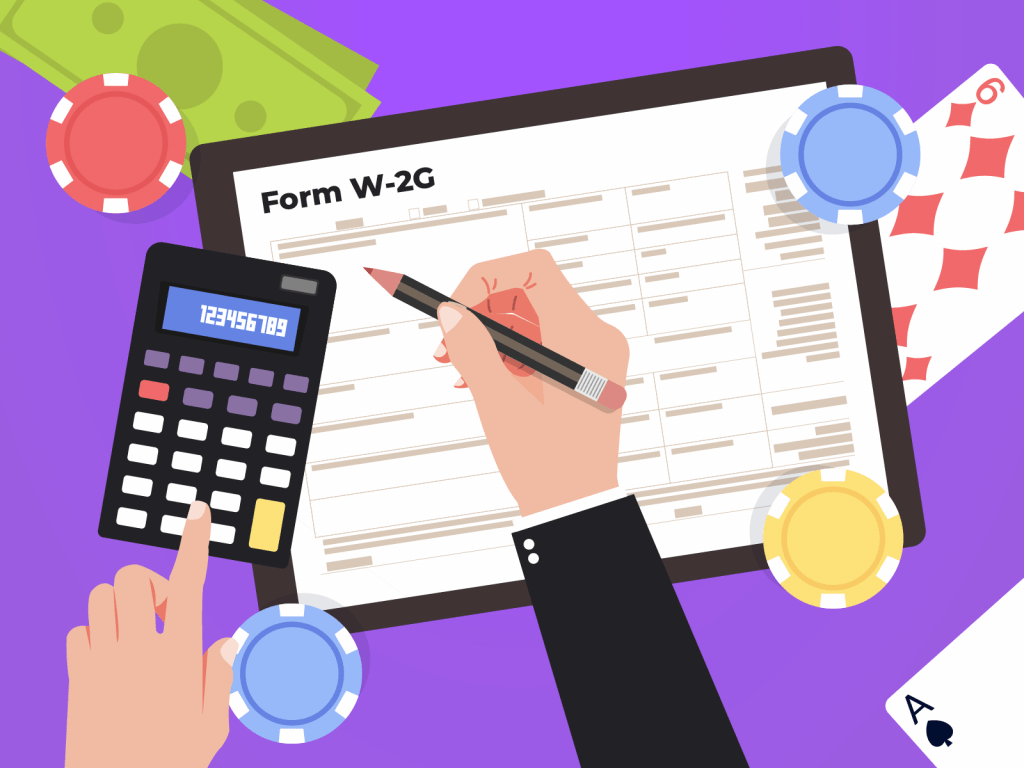Understanding Taxes on Casino Winnings in the United States

What Happens After a Big Casino Win?
Experiencing a major win at a casino-whether it’s landing a slot machine jackpot or picking up hefty winnings at a table game-brings a rush of excitement. However, before you start celebrating, it’s essential to understand that your winnings may carry tax obligations. In the United States, all gambling winnings, regardless of amount, are considered taxable income by the Internal Revenue Service (IRS) and must be reported.
Whether your winnings are as modest as $1 or as substantial as $10,000, the IRS requires that you declare this income on your annual Form 1040 under the “other income” category. In certain situations, the casino will issue you a Form W-2G, specifically when federal reporting thresholds are met. This form is also provided to the IRS, outlining what you won and whether any taxes were withheld.
Federal tax withholding on gambling winnings is typically 24% for U.S. citizens, while non-citizens may have 30% withheld. Understanding when you’ll receive tax forms and how reporting works can help you avoid surprises at tax time.
Key Scenarios When You’ll Receive a Form W-2G

Different types of gambling have distinct IRS reporting requirements. Here’s an overview of when you can expect a Form W-2G based on the type of game and size of your winnings:
| Game Type | Winnings Threshold | Other Requirements | W-2G Issued? |
|---|---|---|---|
| Slots & Video Poker | $1,200 or more | Per Jackpot Win | Yes |
| Live Keno | $1,500 or more | Per Win | Yes |
| Table Games (e.g., Poker, Baccarat) | $600 or more | Payout is 300x bet or higher | Yes |
| Poker Tournaments | Net winnings of $5,000 or more | Buy-in subtracted from payout | Yes |
| Sports Betting & Horse Racing | $600 or more | Payout is 300x bet or higher | Yes |
It’s not uncommon to see some casinos set their slot jackpots just under $1,200 to avoid triggering immediate tax paperwork.
Payout Guidelines for Specific Casino Games
Let’s break down reporting requirements by common casino and betting activities:
- Slot Machines & Video Poker: Jackpots of $1,200 or higher will require reporting, triggering the issuance of a W-2G form.
- Live Keno: For live play, the threshold for reporting is slightly higher at $1,500.
- Table Games: Games regarded as skill-based, such as poker and baccarat, require a W-2G only if winnings are 300 times the wager and at least $600. However, for table games like craps, roulette, or blackjack, a W-2G form is not issued regardless of the payout-but taxes are still due.
- Poker Tournaments: Only tournament wins of more than $5,000 (after subtracting buy-in cost) require a W-2G. Professional poker players may treat their poker activities like a business and report wins and losses accordingly.
- Sports Betting & Horse Racing: Any win of at least $600 that’s also 300 times the original wager triggers a W-2G. With the widespread legalization of sports betting, expect increased reporting and paperwork.
Even if you don’t receive a W-2G for your winnings-for example, after a big win at the blackjack table-you are still legally required to declare your gambling income.
What to Expect If You’re a Big Winner
When you hit a major payout, casino staff will typically request identification documents and a Social Security Number (SSN) or Taxpayer Identification Number (TIN). If the casino does not already have this information, you’ll be asked to complete an IRS Form W-9 to confirm your details for tax reporting.
If you don’t provide the requested documentation, the casino won’t release your winnings immediately. Instead, the amount will be held for a period, giving you the chance to produce the necessary forms. Declining to submit a W-9 can trigger what’s called “backup withholding,” where 28% of your prize is automatically withheld for tax purposes, and up to 33% if your prize is non-cash (such as a vehicle or a luxury item).
Some states also collect taxes on gambling winnings, though Nevada, the casino capital of America, does not.
When tax season arrives, keep all your W-2G forms organized and report the total on your tax return. Even if you had taxes withheld, the IRS needs the documentation to ensure everything reconciles correctly.
Withholding, Deductions, and Tax Planning for Gamblers
A frequent misconception is that gambling losses can always offset winnings to eliminate tax liability. In reality, this is only true if you choose to itemize deductions rather than claim the standard deduction. Following changes to federal tax law in 2018 that nearly doubled the standard deduction, most Americans no longer have an incentive to itemize-meaning many taxpayers lose the ability to deduct gambling losses.
Key points for tax planning:
- Always report all gambling winnings, even smaller ones.
- Keep clear records of both winnings and losses in case you itemize deductions.
- If you are unsure about your tax strategy or whether you should have withholding taken out of your jackpots, consult a qualified tax advisor.
If you neglect to withhold taxes on a taxable win and are not itemizing, you may be surprised with a higher tax bill. It’s generally safest to permit withholding on large wins unless you have a well-established reason or professional advice to do otherwise.
Final Thoughts
While the thrill of winning at a casino is hard to beat, it’s crucial not to overlook your tax responsibilities. Every gambling win-whether or not it generates a formal tax form-needs to be reported to the IRS.
If you receive one or more W-2G forms, ensure each is included in your year-end tax filing. Consider doing a comparison between taking the standard deduction and itemizing to understand which process is most beneficial for your situation.
For the best financial outcome, and to avoid costly errors, seeking advice from a tax professional is always recommended-especially after a major win. Remember: the IRS expects accurate reporting of all gambling income, and failing to do so could turn a great win into an unpleasant tax surprise.













